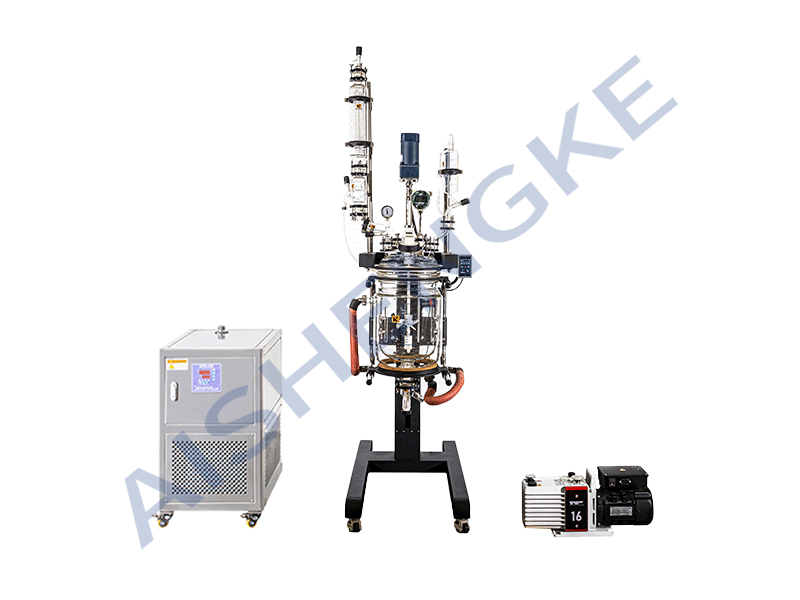The characteristics of laboratory glass reactor
Release Time:
2022-11-17
Pageviews:
The laboratory glass reactor mainly utilizes the characteristics of its double-layer glass. Under normal pressure or negative pressure, reactants are placed in the middle interlayer by stirring the reaction. The glass reactor is clamped in the double-layer reactor, and the material in the reactor is heated or cooled at a constant temperature by injecting hot solution or constant temperature cooling liquid, and stirring is provided. In this way, the medium in the middle layer of the glass reactor can be heated or cooled by stirring and circulating the reaction. It is a commonly used biochemical instrument, which is widely used in modern fine chemical industry, biopharmaceutical, scientific research experiment and other industries. It can perform constant speed, constant force and constant temperature under the conditions of concentration, distillation, reflux, separation and purification reaction. It is teaching, The ideal instrument for experiments, pilot tests and production.

Under normal pressure or negative pressure, the glass reactor is stirred and reacted in a sealed container at a certain temperature, and the evaporation and reflux of the reaction liquid can be controlled. Generally, there are single-layer glass reactors, double-layer glass reactors and triple-layer glass reactors.
Glass reactors are widely used in petroleum, chemical, rubber, pesticide, dye, pharmaceutical, food and other industries. kettle, decomposition tank, polymerization kettle, etc.
Latest News
2024-09-03
Abstract: Oil deacidification is an important step in food processing, which aims to remove free fatty acids in oil and improve its quality and stability. Traditional deacidification methods have some limitations, such as low efficiency, high energy consumption, and loss of nutrients. In recent years, molecular distillation technology has gradually attracted attention as a new deacidification method. This article will introduce the application of molecular distillation in oil deacidification, including the principle, operation process and advantages, and focus on the outstanding advantages of Aishengke in molecular distillation technology.
Vitamins are products that are closely related to people's lives, and have become one of the main bulk products in the international pharmaceutical and health care products market. The amount of vitamin E is the largest, followed by vitamin A, vitamin C, vitamin D and so on. With the growth of economy and the improvement of people's living standards, the demand for vitamin products will further increase, and people's requirements for their quality and grade will also further increase. Therefore, as an important separation technology in the production of many vitamins, molecular Distillation technology will also play an increasingly important role in the vitamin industry.
Glyceryl monostearate (GMS), abbreviated as monoglyceride, is produced from natural vegetable oils and fats. The active ingredient is purified by molecular distillation technology to more than 90%, also known as molecular distillation monoglyceride. It is the most widely used food Additives, safe to use in the production and processing of food, medicine, plastics, etc., account for more than half of the emulsifier consumption in the market.
The principle of molecular distillation is to make use of the different degrees of affinity between different molecules. By controlling the conditions such as temperature and pressure, the mixture begins to vaporize. Different components in the vapor form liquids in the condenser and are separated according to their boiling points. This distillation method not only has a good separation effect, but also can be repeatedly separated and purified, and is widely used in chemical, pharmaceutical and other fields.
Molecular distillation is a common chemical method used to separate and purify compounds. In the pharmaceutical industry, molecular distillation is widely used in pharmaceutical purification. This article will focus on the application of molecular distillation in pharmaceutical purification and provide some specific examples.
Laboratory vacuum distillation equipment has undergone significant advancements in recent years, driven by the need for higher efficiency, improved safety, and enhanced user experience.
Global recruitment of distributors
If you recognize the brand, technology, products and market prospects of Aishengke, we look forward to establishing a strategic partnership with you for win-win cooperation and development. Looking forward to your joining!

